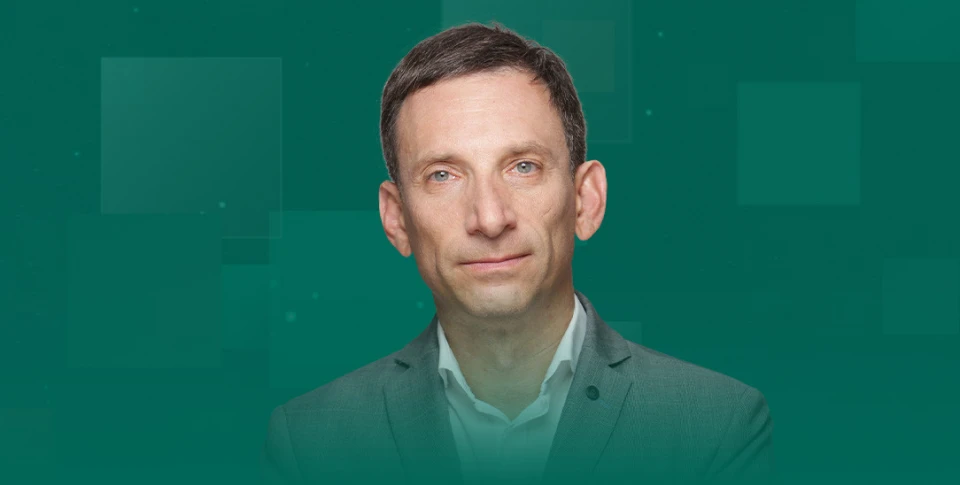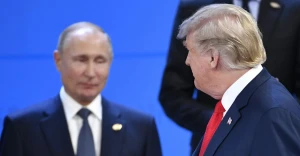
Taurus missiles are key: Scholz’s cynical Kyiv visit
German Chancellor Olaf Scholz made his first visit to Kyiv since 2022, when he traveled there alongside other European leaders
This visit is seen as significant mainly because it signals Germany’s continued support for Ukraine. During his stay, Scholz announced another aid package for the country.
Observers are speculating about what Scholz discussed behind closed doors with Volodymyr Zelenskyy, particularly after his recent conversation with Vladimir Putin. Many believe Scholz is keen to gauge what compromises Kyiv might consider if peace talks to end the Russian-Ukrainian war begin.
That said, I side with German journalists who call Scholz’s visit to Kyiv cynical — a move disconnected from the realities of this war. The Chancellor is already campaigning after the collapse of his coalition, with his party nominating him for another shot at leading Germany. But his chances of securing the position again aren’t promising.
Currently, Friedrich Merz, leader of the Christian Democratic Union, is the frontrunner for Germany’s next chancellor if early Bundestag elections are held. Merz, notably, has been vocal about the need to send Taurus missiles to Ukraine — missiles Scholz has stubbornly refused to supply.
Scholz accuses Merz of fueling a dangerous escalation in relations with a nuclear power. Merz, on the other hand, claims that this kind of fear is ingrained in the political DNA of the Social Democrats, led by Scholz. In this situation, the Federal Chancellor simply needs to show up in Kyiv to make two points clear. First, that Ukraine remains a key focus of his foreign policy and that supporting Ukraine is a priority for his government. Second, that he — not Merz — knows how to assist Ukraine properly, without triggering a serious escalation in relations between Germany and Russia.
So, there’s no need to expect any real progress on supplying Taurus missiles to Ukraine after this visit. In fact, Scholz’s trip to Kyiv seems to have one purpose: to ensure Ukraine doesn’t get these missiles. Because if we imagine his party winning early parliamentary elections and Scholz staying on as Federal Chancellor, he would stick to the same political stance he’s had since the early months of Russia’s full-scale invasion.
In short, Olaf Scholz used this trip and his talks with President Volodymyr Zelenskyy for his own domestic political agenda — one that has little to do with the Russian-Ukrainian war. And let’s not forget, Scholz isn’t the first Western leader to approach a visit to Ukraine with this kind of attitude.
Take Hungarian Prime Minister Viktor Orban, for example. In the early days of his presidency of the European Union, he made a grand visit to Kyiv to meet Zelenskyy. It seemed like a big gesture — almost celebratory. But before Kyiv or European capitals could commend Orban for his constructive approach, the Hungarian leader headed straight to Moscow to meet with Vladimir Putin. From Orban’s perspective, the meeting with Zelenskyy seemed to serve one purpose: to legitimize his trip to Moscow and the talks he had actually planned all along.
Scholz seems to be heading in the opposite direction. He was the first Western leader in years to break Putin’s diplomatic isolation, speaking with him even before newly elected U.S. President Donald Trump could carry out this humiliating task. Now, after his talks with Volodymyr Zelenskyy, he appears to be justifying his earlier conversation with Putin. Yet it’s obvious that Scholz achieved nothing in that exchange, aside from hearing Putin’s conditions for ending the Russian-Ukrainian war — conditions that remain the same ultimatums Russia issued to Ukraine back in early 2022.
What’s notable about this conversation, perhaps, is that Scholz was simply the first to hear what the Russian president may later repeat to the new U.S. president — if, of course, that conversation happens. But after visiting Kyiv and meeting Zelenskyy, Scholz seems to suggest there’s nothing dramatic about speaking with Putin again. It’s framed as part of broader efforts to pause the war — a new trend in the West after Donald Trump’s election victory in the United States.
In reality, however, Trump’s election should spark a shift in Europe’s mindset. The focus must be on how to resist any deals Trump might strike with Putin at Ukraine’s expense — or at the expense of European security overall. How much support can EU nations provide Ukraine if U.S. aid dries up and Trump leans toward humiliating compromises with Putin?
This isn’t just about financial aid in raw numbers. Germany, given its economic power, could contribute significantly. But the real question is about weapons — those the new U.S. administration might refuse to supply to Ukraine. In this scenario, no matter what the Federal Chancellor thinks, Taurus missiles would be indispensable. For Ukraine, it would have been far better to have Friedrich Merz leading Germany instead of Olaf Scholz.
About the author. Vitaliy Portnykov, journalist, National Shevchenko Prize laureate
The editorial staff does not always share the opinions expressed by the blog authors.
- News












































